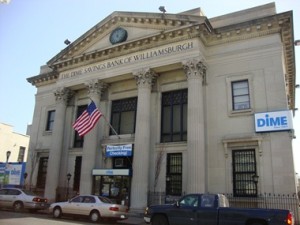An annual anti-littering campaign is once again sweeping the streets (and beaches) of New York City this summer.
A coalition made up of the New York City Department of Environmental Protection, Department of Sanitation, Department of Parks and Recreation, and the U.S. Environmental Protection Agency has launched the 2016 version of the “Clean Streets=Clean Beaches” campaign, with the intent to reduce littering and improve the aesthetic of New York City’s beaches.
“Throughout the summer, the city’s beautiful beaches, from Orchard Beach in the Bronx to Cedar Grove Beach on Staten Island, are choice destinations for New Yorkers looking to swim and sunbathe,” said DEP Acting Commissioner Vincent Sapienza. “I’d like to encourage all New Yorkers to pitch in, do their part and keep the beaches safe and clean. Do the right thing and put your trash where it belongs – in a litter basket and not on the street.”
The DEP is also joining forces with the Department of Youth and Community Development to hire nearly 200 young people who will spend approximately 25 hours per week removing litter and debris from waterfront properties. The program will also utilize informational posters displayed at beaches and on DSNY fleet vehicles in order to encourage New Yorkers not to litter.
These vehicles include approximately 450 mechanical brooms that sweep litter from more than 6,000 miles of street per day.
“The Clean Streets = Clean Beaches campaign means a cleaner and greener city and an opportunity for our Summer Youth Employment Program participants to learn the value of hard work, giving back to their communities, and beautifying our neighborhoods and waterfront properties for all to enjoy,” said DYCD Commissioner Bill Chong. “Through this initiative, our young people not only learn about the value of civic engagement, but inspire their peers and all New Yorkers to take great pride in their city.”
The campaign began in the early 1990s in order to bring attention to the link between litter on streets and litter that appears on New York’s 14 miles of beaches and 150 miles of coastline. According to the EPA, pollution from land may contribute to a total of one pound of plastic to every three pounds of fish in the world’s oceans in the next 10 years.
“The Clean Streets = Clean Beaches campaign is about taking pride in our community – both on land and in our ocean and harbor,” said Jeffrey Gratz, acting director of EPA Region 2’s Clean Water Division. “The marine life that live in and around our waterways and beaches are precious. We must all remember that garbage on our streets can end up in storm drains, and that garbage can end up on our beaches. Let’s work together to stop littering and reduce our waste.”





 Dime Savings Bank Serving Williamsburg Brooklyn Since 1864
Dime Savings Bank Serving Williamsburg Brooklyn Since 1864  Adam Suerte Paints Urban Brooklyn
Adam Suerte Paints Urban Brooklyn